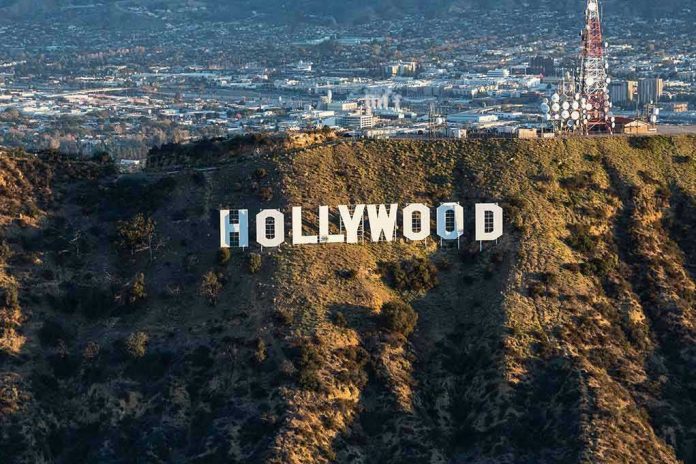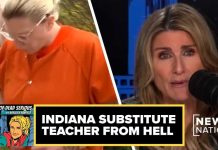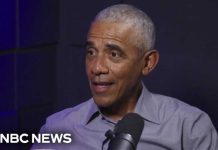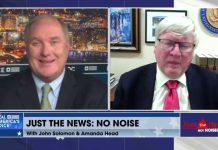
Claims of evidence suppression and judicial bias in the Danny Masterson case now threaten the very integrity of our legal system, igniting fierce debate over fairness in high-profile prosecutions.
Story Snapshot
- Danny Masterson seeks a new hearing, alleging withheld exculpatory evidence and biased LAPD investigation.
- The defense claims the court allowed prejudicial focus on Masterson’s association with the Church of Scientology.
- Experts caution these procedural failures could undermine due process for all Americans.
- The outcome could set a major legal precedent for high-profile trials involving controversial organizations.
Masterson’s Fight for a New Hearing Highlights Deep Concerns Over Due Process
In November 2025, actor Danny Masterson, best known for “That ‘70s Show,” filed a petition demanding a new hearing after his 2023 conviction for the rape of two women. Masterson’s filing accuses the Los Angeles Police Department of conducting a biased investigation and alleges that key evidence favoring his innocence was withheld during the trial.
His legal team further asserts that his original defense failed to call crucial witnesses, raising alarms about whether he ever received a fair trial in the first place.
Masterson’s case, already controversial due to his celebrity status and membership in the Church of Scientology, now exposes potential systemic failures in the justice system. The defense contends that the trial court permitted jurors to focus excessively on Masterson’s religious affiliation, creating a prejudicial environment.
This strategy, according to legal experts, can distort the facts and distract from the case’s merits. For conservatives who value equal protection under the law and the right to a fair trial, these developments highlight real threats to constitutional safeguards.
Church of Scientology’s Role and Questions of Religious Bias
The proceedings repeatedly referenced Masterson’s ties to the Church of Scientology—a move his attorneys argue unfairly influenced the jury. Former members of the church were among the accusers, and their complex history with the organization was a central theme in the prosecution’s narrative.
By allowing this focus, the court risked introducing bias based on religious affiliation rather than facts. For many Americans concerned about government overreach and attacks on faith communities, this approach sets a dangerous precedent that could impact anyone with controversial beliefs or affiliations.
Legal analysts note that while religious context may provide background, it must not overshadow the core evidence or become a substitute for proof beyond a reasonable doubt.
The defense’s claims reflect a broader concern that, in today’s climate, high-profile defendants can be targeted not just for alleged crimes, but for their associations—undermining the principle that all are innocent until proven guilty.
Systemic Issues: Ineffective Counsel and Withheld Evidence
In their petition, Masterson’s attorneys argue that his original defense team failed to present essential evidence and neglected to call witnesses who could have exonerated him. Such claims echo past controversies in other celebrity trials where the rush to convict overshadowed procedural fairness.
If true, these failures strike at the heart of the American justice system, where every individual is entitled to vigorous representation and the opportunity to present a full defense. When courts ignore these rights, it puts every American—regardless of status—at risk of similar injustice.
The LAPD’s investigation also faces criticism for potential bias and for allegedly withholding exculpatory evidence. For conservatives wary of unchecked government power, this case reinforces the need for transparency and accountability at every level of law enforcement and prosecution.
Broader Implications: Precedent for Future Trials and Public Trust
Beyond Masterson’s personal fate, the case carries far-reaching implications for the legal system and public trust. Should the appellate court grant a new hearing, it may set a powerful precedent regarding the presentation of religious context and the obligations of defense counsel in high-profile cases.
Such a decision would serve as a warning against the erosion of due process and the dangers of mob-driven justice—concerns that resonate deeply with Americans who value constitutional protections and common sense.
Ultimately, the outcome will impact not only Masterson and his accusers, but also broader debates about celebrity justice, religious freedom, and the integrity of the courts. As the legal battle continues, many are left questioning whether our system still delivers on its promise of fairness for all, or whether it is increasingly vulnerable to bias and outside influence.
Sources:
IMDB News – Danny Masterson Petitions for New Hearing, Citing Legal Missteps and Bias
ABC News – Actor Danny Masterson Asks for Rape Convictions Tossed, Lawyer Cites Errors and Bias




